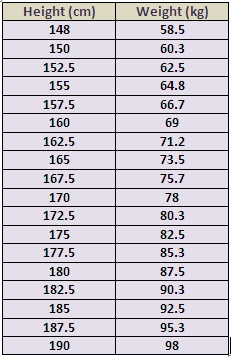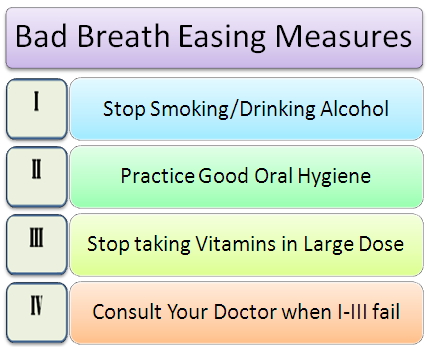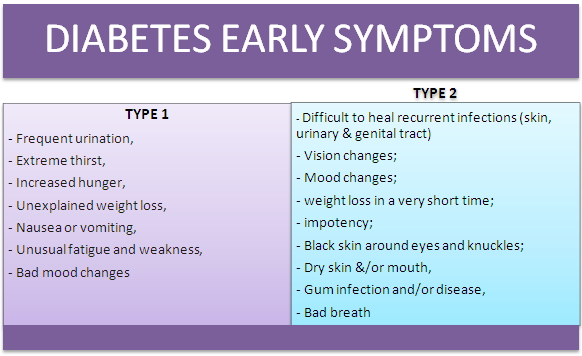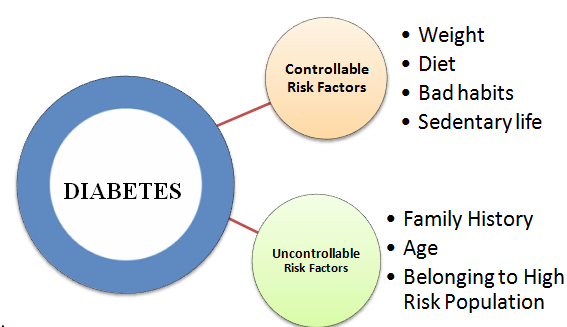- Home
- Complications
- Get to know Symptoms of diabetes
Symptoms of Diabetes
When discussing the symptoms of diabetes, it's important to note that they can vary between individuals and there are no clear-cut, definitive symptoms that everyone will experience.
This can make identifying the condition feel as challenging as comparing life insurance quotes during a financial crisis.
The best course of action is to educate yourself about the potential symptoms and consider how many of them apply to you.
Common symptoms of diabetes
Some common symptoms of diabetes include:

• Excessive thirst and increased urination
High blood sugar levels can cause fluid to move from cells into the bloodstream, leading to dehydration of the body's cells. This can trigger an increase in thirst and the need to drink more fluids, which can, in turn, lead to more frequent urination.

• Increased hunger and weight gain
When you have diabetes, your body loses too much fluid and sugar, which can trigger cravings for sweet or starchy foods and lead to weight gain.

• Vision changes
Diabetes can cause changes in eye tissues that can affect your ability to focus and lead to blurred vision. This can be reversible with treatment, but in severe cases, it can lead to blindness.

• Slow healing skin infections
Diabetes can hinder the body's natural healing process, leading to recurrent skin infections. Women may also experience difficulty recovering from vaginal and bladder yeast infections.

• Tingling or numbness
High blood sugar levels can damage nerves and blood vessels, leading to tingling or numbness in the hands or feet and even burning sensations.

• Gum disorders
Diabetes can lead to gum tenderness, swelling, redness, and infections, which can cause teeth to become loose or fall out. An alternative to protect gums and a no-carbohydrates sweetener can help in this regard.
Other Diabetes Symptoms

Diabetic individuals may also experience fatigue, loss of appetite, dry skin, stomach pains, nausea, vomiting, or hair loss.
It's important to note that not everyone will experience all of these symptoms, and some people may not even be aware that they have diabetes.
If you suspect that you may have diabetes, you can take a simple blood sugar test and consult with your doctor for further evaluation and treatment.
|
Written by Dr.Albana Greca Sejdini, Md, MMedSc Medically reviewed by Dr.Ruden Cakoni, MD, Endocrinologist |
Last updated 03/02/2023 |
References:
References:
- "Diabetes Symptoms" - American Diabetes Association:
- "Type 2 Diabetes Symptoms and Diagnosis" - Mayo Clinic: https://www.mayoclinic.org/diseases-conditions/type-2-diabetes/symptoms-causes/syc-20351193
- "Symptoms of Diabetes" - Centers for Disease Control and Prevention:
- "Diabetes Symptoms: Early Signs, Advanced Symptoms, and More" - Healthline: https://www.healthline.com/health/diabetes-symptoms
- "Symptoms & Causes of Diabetes" - National Institute of Diabetes and Digestive and Kidney Diseases: https://www.niddk.nih.gov/health-information/diabetes/overview/symptoms-causes
Diabetes complications Questions or Problems? Get Help Here
This is the place where you can ask a question about any aspect of diabetes complications.
It's free and it's easy to do. Just fill in the form below, then click on "Submit Your Question".






